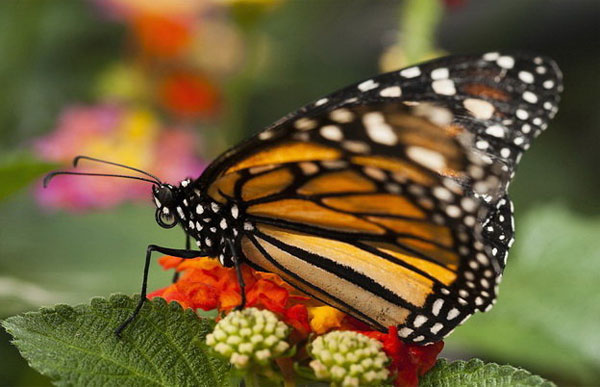Wild animals are lost by humans
In the past 40 years, the species 'population' on Earth has halved, an alarming number and much more serious than previous reports.
In the new "Living Planet Index" report released on September 29, the London Animal Society (ZSL) said in the last 40 years, 'population' of mammals, birds, reptiles, and amphibians. residents and fish have decreased by an average of 52%. In particular, the 'population' of freshwater fish species decreased by 76%.
The report - carried out in collaboration with the World Wildlife Fund (WWF), said people are cutting down forests faster than forests to regrow, exploiting fish in more numbers. New fish are born . and emit more carbon than the absorption capacity of forests and oceans.

"Population" of butterflies dropped by 90% in 20 years - (Photo: DailyMail)
In Ghana, the lion population in a protected area has fallen to 90% over the past 40 years.
In West Africa, deforestation causes wild elephants to have only 6-7% of their habitat habitat.
In Nepal, due to hunting and habitat loss, the tiger population has been reduced from 100,000 to just 3,000 within a century.
According to the BBC, no matter what number, there is an obvious fact that wildlife is continuing to disappear due to human activities.
"The scale of the annihilation emphasized in this report is a wake-up call for all of us. We need to care and be responsible, act to ensure a healthy future for all humans. and nature, ' said David Nussbaum, managing director of WWF, the Daily Mail on September 30 quoted.
He also said consumers can reduce the impact on wildlife by choosing sustainable products, such as buying only fish, wood . certified by management units.
He also said that consumers may consider reducing meat and milk consumption.
Professor Jonathan Baillie - director of the ZSL conservation program, says people should think about everything they do, from recycling to putting pressure on political and industrial leaders, and bringing children go outside so that they can reconnect with nature, thereby consciously preserving and protecting nature .
- 7 species of wild animals are being eradicated by humans
- 10 most dangerous animals on the planet
- All kinds of animals survive when the price is cold
- Photography: 'Talking eyes' of wild animals
- Catch a red-faced monkey who strayed into people's houses
- American wild boar 'invades' Mexico
- New discoveries about animals
- Video: The secret to creating and keeping fire when lost in the wild
- 7 differences between animals and wild animals
- Why did Australia destroy 2 million cats?
- Scary of the bloodthirsty animal cases of human massacre
- Fascinating wild dogs with lovely looks, personality like wolves
 Animal 'suffering' after hibernation
Animal 'suffering' after hibernation Why do goats climb well?
Why do goats climb well? Scientists were surprised to see chimpanzees eating turtles
Scientists were surprised to see chimpanzees eating turtles Giant catfish died deadly due to drought in Thailand
Giant catfish died deadly due to drought in Thailand